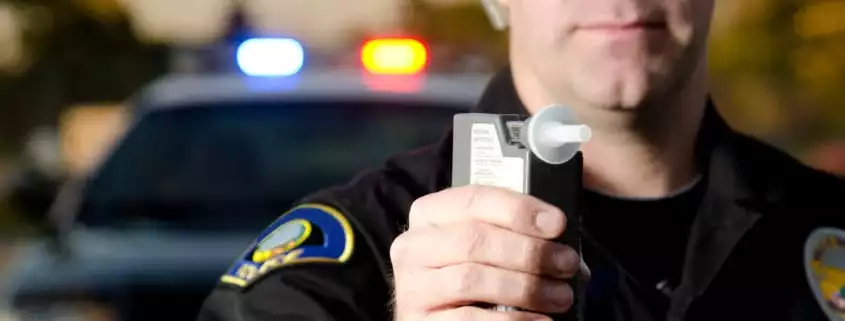Breathalyzer Laws In California
Today, around 30% of fatalities occurring in motor vehicle accidents are the result of impaired or drunk driving.
This statistic is down from 50% in the 1960s, largely due to educational campaigns and increased enforcement. Enforcement is easier these days, in part because of the popular breathalyzer test to measure blood alcohol content.
What is the law on breathalyzers in California?
What Is A Breathalyzer?
A breathalyzer is a hand-held device used by law enforcement to test the level of alcohol in your system; you’ll be required to take a deep breath and blow into the device. Breathalyzers use either fuel cell sensors or semiconductor sensors to measure the alcohol content in your breath, which is used to calculate your Blood Alcohol Concentration (BAC). For many years, a BAC level of 0.10 was considered the standard in the United States for drunkenness. Today, most states have reduced that standard to 0.08. The American Medical Association maintains that at a BAC level of 0.05 a person can be impaired. While there are several processes for identifying an impaired or a drunk driver, the breathalyzer has remained one of the most common.
Do I Have To Take A Breathalyzer Test?
All states have “implied consent laws,” which means by operating a vehicle, you have implied your consent to a BAC test. The California implied consent law states that if you arrested and the officer has probable cause to believe you are driving while under the influence, you automatically consent to BAC testing. That may be a breathalyzer test, but it may also be a blood or urine test. You can choose between a blood test and a breathalyzer, and you’ll have to take a urine test if neither a blood nor breath test is available.
Even if you haven’t been arrested, you’re still required to take the test. Under California law, you have also impliedly consented to submit to a preliminary breath test by applying for and receiving a driver’s license from the state to operate a vehicle on public roadways.
The officer who pulled you over will tell you that you may choose to refuse the test. However, refusing the test will result in penalties. In addition, you do not have the right to speak to an attorney about whether you should take the test before you make the decision. If you do submit to a breathalyzer test, the results may be used to establish probable cause for your arrest as necessary. Remember that refusing to take the test does not guarantee you won’t be arrested. In fact, if the officer has another reason to believe you are intoxicated, you could still be arrested and required to submit to a mandatory BAC test anyway.
Refusing To Take A Breathalyzer
So, you don’t have to take the test if you haven’t been arrested yet. The officer is required by law to advise you of the consequences: you will receive a fine, you will lose your driver’s license, and you face possible jail time if you are subsequently convicted of driving under the influence and/or refusal to submit to the test.
In California, refusing a breathalyzer test is its own charge separate from the DUI. The penalties for refusing the test are determined by your prior record. Refusing the test once will result in suspension of your license for a year. If you’ve refused the test before or if you’ve been convicted of DUI or reckless driving within the past 10 years, you’ll lose your license for 2 years. If you’ve refused the test twice before or if you’ve been convicted of reckless driving or DUI twice or more during the past 10 years, your license will be suspended for 3 years. Regardless of your record, you will face a $125 fine for refusing to take the test.
While the refusal to take the test can make the consequences of your DUI charge worse, it also means that the prosecutor may have less evidence with which to prosecute you. This could create a scenario where a plea bargain may be struck for reckless driving or speeding. It is not, however, a guarantee that you will not ultimately be convicted of DUI and/or have your driver’s license suspended by the Department of Motor Vehicles.
A refusal can be either express or implied. In other words, you can say to the officer that you will not take the test and that would be an express or explicit refusal. Alternately, you can remain silent when asked if you submit and that would be implied refusal. If you consent to the test and then subsequently change your mind, you will be deemed to have impliedly refused as well.
Should You Take A Breathalyzer?
It’s almost never a good idea to refuse the test. You’ll end up with your license suspended for a year and it won’t necessarily protect you from a DUI conviction. In most cases, the officer who pulled you over will have enough probable cause to arrest you and administer the test anyway.
If you have been arrested for DUI, you need the help of an experienced attorney to protect your rights and help you get the best possible outcome in court. Our DUI defense attorney referral service can help.
Image Credit and License
Are you in search for a certified attorney to represent you?
Let us help you find one today!

